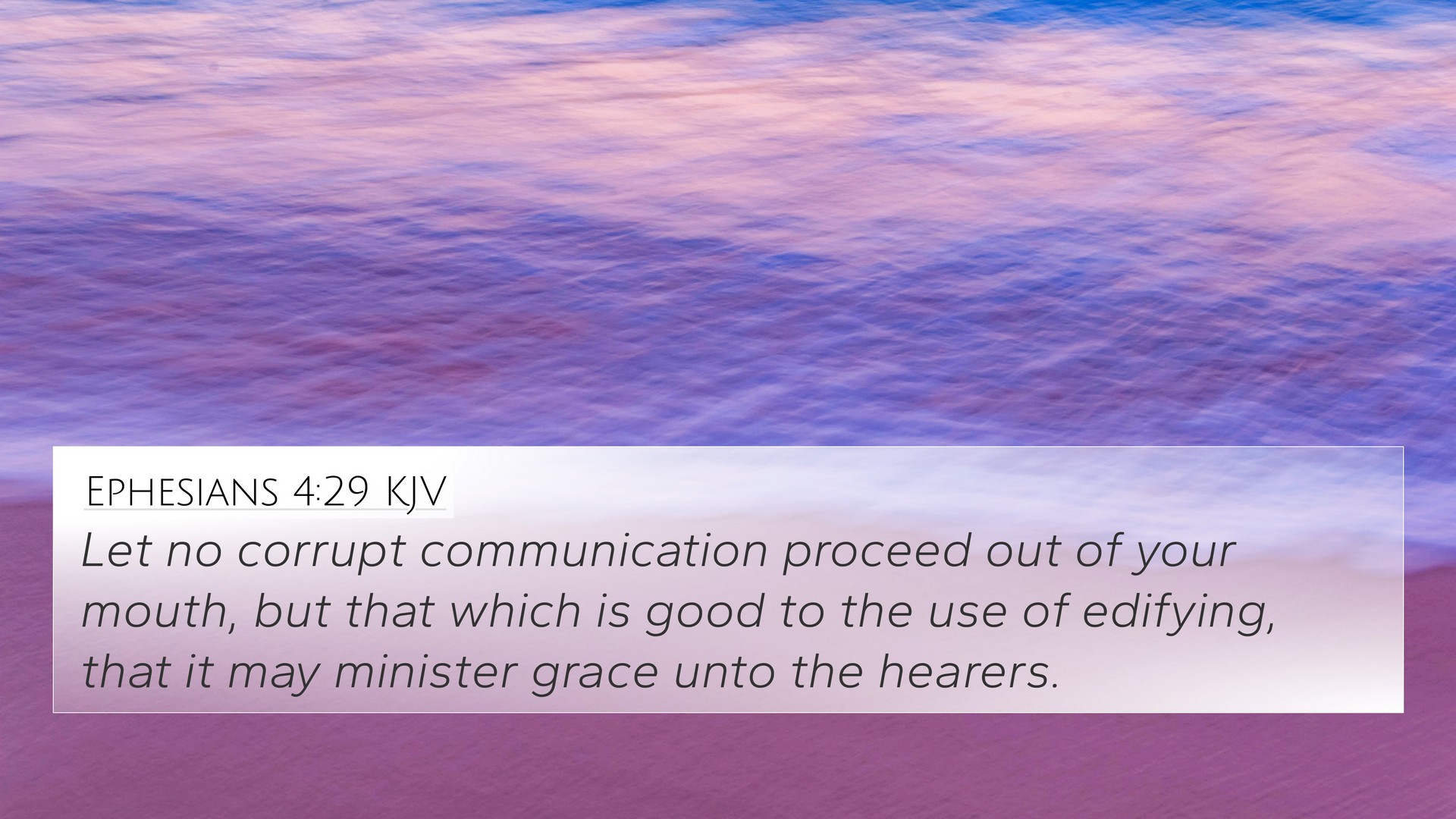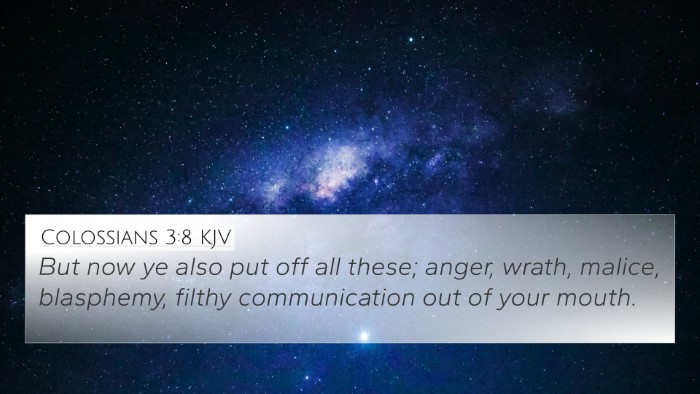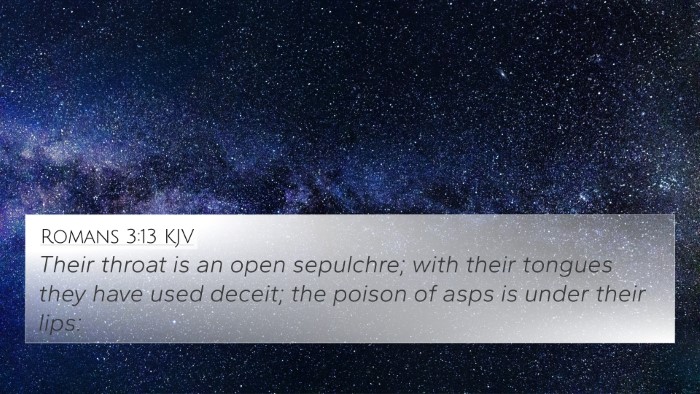Ephesians 4:29 - Understanding the Verse
Ephesians 4:29 states: "Let no corrupt communication proceed out of your mouth, but that which is good to the use of edifying, that it may minister grace unto the hearers."
Overview
This verse emphasizes the importance of our speech and its impact on others. It instructs believers to avoid harmful words and instead focus on communication that inspires, builds up, and encourages.
Summary of Meanings
- Corrupt Communication: Refers to language or words that are inappropriate, harmful, or degrading. Such speech can negatively affect both the speaker and the listener.
- Edifying Speech: The verse calls for our words to be constructive and beneficial, aiming to uplift and strengthen others spiritually and emotionally.
- Ministering Grace: Words have the power to convey God's grace, which implies that our communication should reflect His love and kindness.
Insights from Commentaries
Matthew Henry
Henry highlights that corrupt communication is not only about vulgarity but also any words that harbor negativity, bitterness, or malice. Instead, he emphasizes the need for our discourse to be seasoned with grace, reflecting the character of Christ.
Albert Barnes
Barnes delineates that the verse serves as a strong reminder of the power of the tongue. He remarks that words can both uplift and destroy, hence underscoring the need to speak thoughtfully and with intention.
Adam Clarke
Clarke points out the necessity of communicating in a way that brings forth spiritual growth. He suggests that believers should endeavor to speak with purpose, promoting righteousness and justice in their interactions with others.
Bible Verse Cross-References
This verse connects with various other scriptures that elaborate on the theme of speech and edification:
- Proverbs 18:21: "Death and life are in the power of the tongue." - Emphasizes the profound impact of our words.
- Colossians 4:6: "Let your speech be always with grace, seasoned with salt." - Highlights the importance of speaking graciously.
- James 1:19: "Let every man be swift to hear, slow to speak, slow to wrath." - Encourages patience in speech.
- Matthew 12:36: "But I say unto you, That every idle word that men shall speak, they shall give account thereof in the day of judgment." - Warns about the accountability of our speech.
- Proverbs 15:4: "A wholesome tongue is a tree of life." - Illustrates the nurturing aspect of good speech.
- Romans 14:19: "Let us therefore follow after the things which make for peace, and things wherewith one may edify another." - Aligns with the call to build one another up.
- 1 Peter 3:10: "For he that will love life, and see good days, let him refrain his tongue from evil, and his lips that they speak no guile." - Advises restraint on harmful speech.
Thematic Connections
Ephesians 4:29 can be seen in connection with several thematic elements throughout the Bible:
- Speech and Integrity: The Bible consistently connects speech with integrity, suggesting that our words should align with godly character.
- Love and Kindness: There is a reoccurring theme that encourages believers to speak out of love, emphasizing gentleness and compassion.
- Building the Church: Edifying speech strengthens the community of faith, encouraging unity and growth among believers.
Applications for Today
The principles found in Ephesians 4:29 have profound applications in modern life:
- Encouraging Others: Seek to uplift people around you through positive words and encouragement.
- Avoiding Negativity: Be mindful of your speech, avoiding gossip, slander, and negativity.
- Reflection of Christ: Let your words represent the character of Christ, showcasing love and grace in all interactions.
Tools for Bible Cross-Referencing
To further explore connections between Bible verses, utilizing Bible concordances, Bible cross-reference guides, and other Bible reference resources can enhance your understanding. These tools allow for:
- Identifying thematic connections.
- Conducting comparative studies of related scriptures.
- Finding parallels between Old and New Testament teachings.
Final Thoughts
Understanding Ephesians 4:29 calls Christians to a higher standard of communication that not only reflects their faith but also promotes growth and harmony within the community. By engaging in scriptural cross-referencing, we can deepen our understanding of how these teachings resonate throughout the Bible, ultimately nurturing a more Christ-like expression in our words and actions.


























